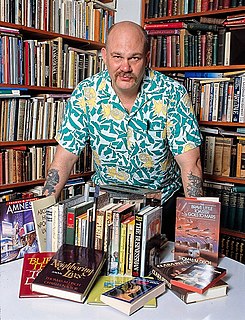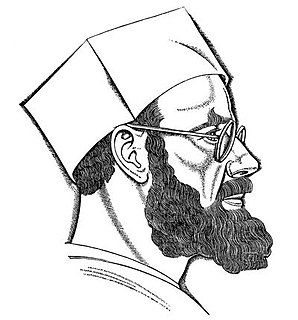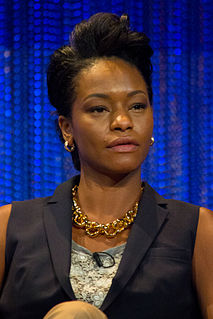A Quote by Luis Bunuel
I find it [science] analytical, pretentious and superficial-largely because it does not address itself to dreams, chance, laughter, feelings, or paradox-in other words,-all the things I love the most.
Related Quotes
The whole point of science is that most of it is uncertain. That's why science is exciting--because we don't know. Science is all about things we don't understand. The public, of course, imagines science is just a set of facts. But it's not. Science is a process of exploring, which is always partial. We explore, and we find out things that we understand. We find out things we thought we understood were wrong. That's how it makes progress.
Sentir mon Cœur is a privilege only granted to the exceptional man - the one who has the ability to find words that exactly (or, to himself, convincingly) express his feelings... The value of words help to define the feeling itself... The common failure is to allow habitual words and phrases, flowing spontaneously from the memory, to determine and deform the feelings.
Propaganda must not concern itself with what is best in man - the highest goals humanity sets for itself, its noblest and most precious feelings. Propaganda does not aim to elevate man, but to make him serve. It must therefore utilize the most common feelings, the most widespread ideas, the crudest patterns, and in so doing place itself on a very low level with regard to what it wants man to do and to what end. Hate, hunger, and pride make better levers of propaganda than do love or impartiality.
The world of science lives fairly comfortably with paradox. We know that light is a wave, and also that light is a particle. The discoveries made in the infinitely small world of particle physics indicate randomness and chance, and I do not find it any more difficult to live with the paradox of a universe of randomness and chance and a universe of pattern and purpose than I do with light as a wave and light as a particle. Living with contradiction is nothing new to the human being.
In a universe governed by God there are no chance events. Indeed, there is no such thing as chance. Chance does not exist. It is merely a word we use to describe mathematical possibilities. But chance itself has no power because it has no being. Chance is not an entity that can influence reality. Chance is not a thing. It is nothing.
All I know for sure is that dreams are the pictures of states wanting to turn into processes. Dreams are maps of the beginning of an otherwise unchartered trip into the unknown. They are pictures of the unknown which appear in many channels. Because process work is body-oriented, I put a stress upon feelings, but dreams are not pictures of just feelings; they are pictures of the way the unknown is showing itself in a given moment.
Dreams are self-created, but dreamers often do not understand the images that their own minds produce. Therein lays the essential paradox of dreams; dreams reveal that we all possess subconscious ability. Furthermore, our subconscious mind, as it is revealed through dreams, proves itself to be talented, artistic, insightful, perceptive and intelligent.
Every child deserves a chance at a life filled with love, laughter, friends and family. We are working to find the cures that will give these youngsters a fighting chance. When a child or parent faces an uncertain disease like cancer, they can find hope at St. Jude - a place where miracles can and do happen.
We think only through the medium of words. Languages are true analytical methods. Algebra, which is adapted to its purpose in every species of expression, in the most simple, most exact, and best manner possible, is at the same time a language and an analytical method. The art of reasoning is nothing more than a language well arranged.
To hide a passion totally (or even to hide, more simply, its excess) is inconceivable: not because the human subject is too weak, but because passion is in essence made to be seen: the hiding must be seen: I want you to know that I am hiding something from you, that is the active paradox I must resolve: at one and the same time it must be known and not known: I want you to know that I don't want to show my feelings: that is the message I address to the other.
You will notice that what we are aiming at when we fall in love is a very strange paradox. The paradox consists of the fact that, when we fall in love, we are seeking to re-find all or some of the people to whom we were attached as children. On the other hand, we ask our beloved to correct all of the wrongs that these early parents or siblings inflicted upon us. So that love contains in it the contradiction: The attempt to return to the past and the attempt to undo the past.





































